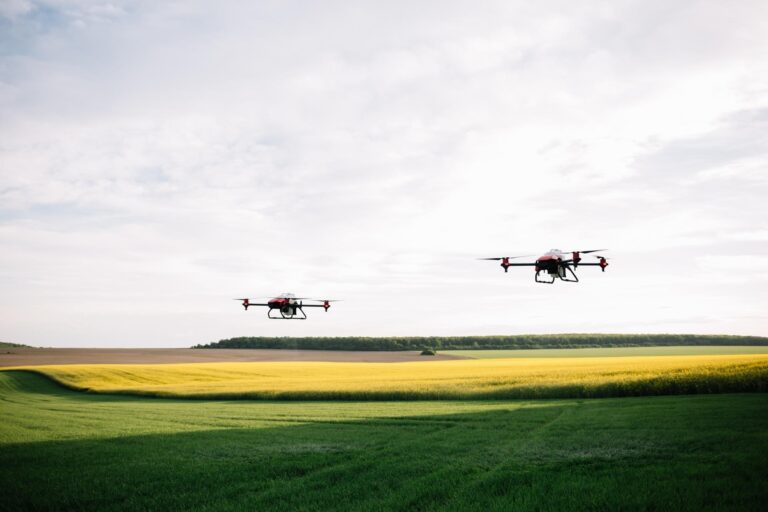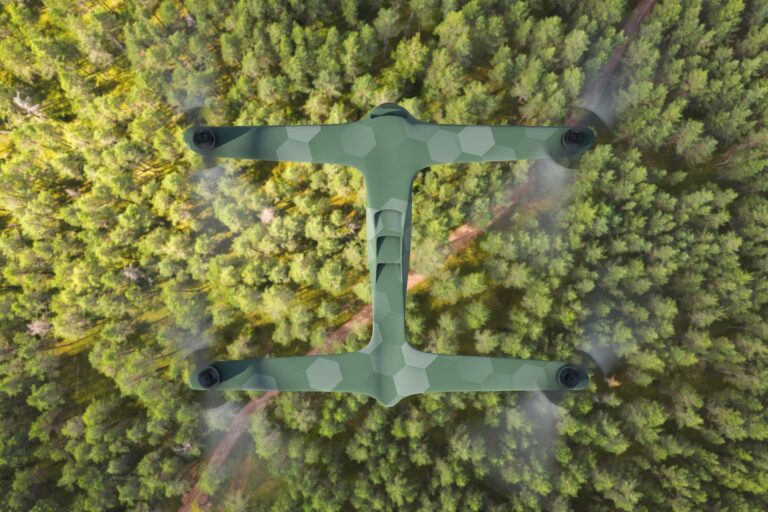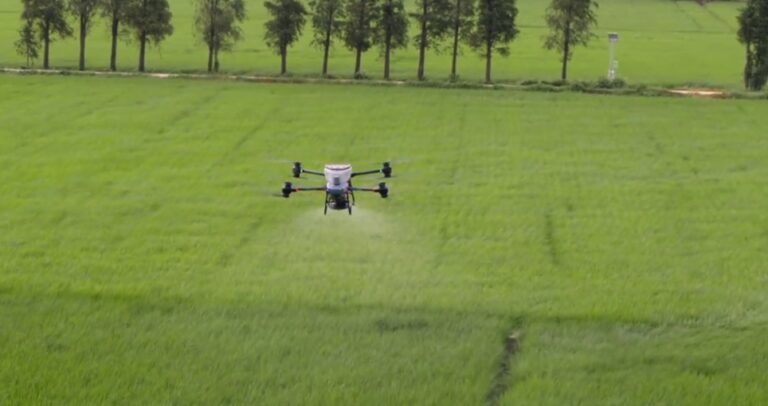Sustainable Farming Made Easy: Precision Spraying Techniques to Reduce Waste and Boost Yields
In the rapidly evolving world of agriculture, sustainable practices are more important than ever, and precision spraying techniques are at the forefront of this movement. By integrating advanced drone technology into farming operations, we can significantly reduce chemical waste and enhance crop yields, all while maintaining a focus on environmental stewardship. At Precision Drone LLC, our state-of-the-art drones offer unmatched precision and efficiency for farmers across Michigan, revolutionizing traditional practices with modern solutions. From accurately applying fertilizers, herbicides, and pesticides to monitoring crop health through multispectral imaging, our services provide the data-driven insights needed for successful and sustainable farming. Join us as we delve into the transformative impact of precision spraying and explore how these cutting-edge techniques can elevate agricultural productivity to new heights.
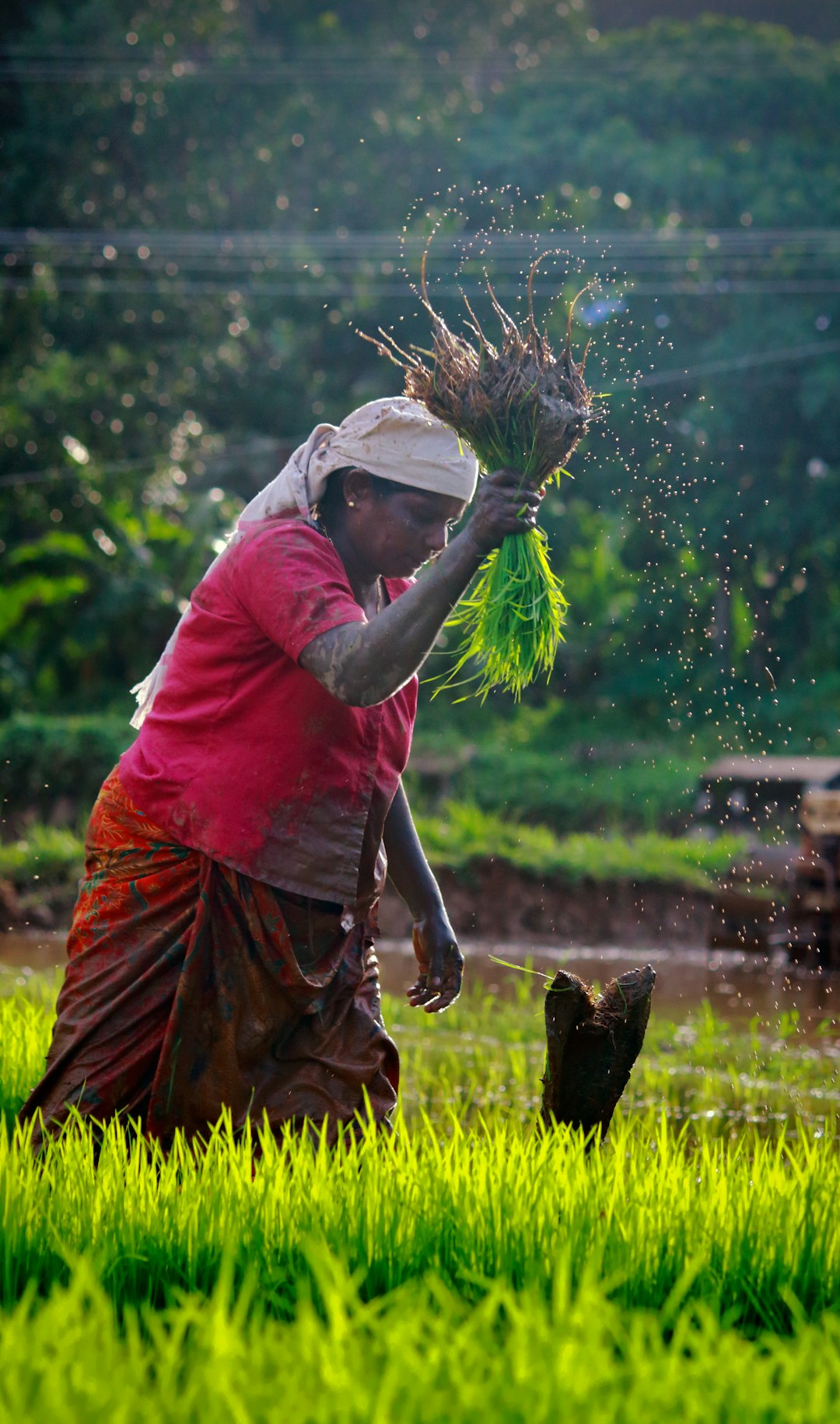{source=”unsplash” unsplashQuery=”agriculture, drones, sustainable farming, precision spraying, crop management, technology, environmental stewardship” unsplashId=”5NGTf4oD8RA”}
## Introduction to Precision Spraying
Precision spraying stands at the intersection of technology and agriculture, offering innovative solutions to age-old farming challenges. By deploying drone technology, farmers can achieve unprecedented accuracy in applying agricultural inputs, reducing waste and maximizing efficiency.
### The Role of Drone Technology
Drones have revolutionized precision spraying by offering a bird’s-eye view of agricultural fields. **Equipped with GPS and advanced sensors**, drones can navigate large areas quickly, ensuring even distribution of fertilizers and pesticides.
1. **Flight Planning**: Drones are programmed with flight paths to cover specific areas efficiently.
2. **Spraying**: They release chemicals with precision, minimizing overlaps and ensuring coverage.
3. **Real-Time Monitoring**: Operators can adjust parameters based on live data.
*By using drones*, farmers reduce labor costs and enhance productivity. Michigan farms, for instance, have seen a notable decrease in chemical usage, promoting both economic and environmental benefits.
### Benefits of Precision Spraying
Precision spraying provides several advantages. **First**, it significantly reduces chemical usage, benefiting both the environment and farmers’ bottom lines. *Second*, it enhances yield by targeting specific crop needs more accurately.
– **Economic Benefits**: Lower input costs and increased crop quality.
– **Environmental Benefits**: Reduced runoff and soil degradation.
Farmers employing precision spraying often report healthier crops and increased profits, underlining the technology’s potential.
### Addressing Environmental Concerns
Environmental stewardship is critical in modern agriculture. **Precision spraying minimizes environmental impact** by limiting chemical exposure to non-target areas and reducing runoff.
**Environmental groups** have praised precision spraying for its sustainable approach. For example, a Michigan-based farm reduced its pesticide use by 25% within the first season of implementing drone technology.
– **Water Quality**: Less chemical runoff leads to cleaner waterways.
– **Soil Health**: Reduced chemical use helps maintain soil fertility.
These benefits contribute to a healthier ecosystem, aligning with broader conservation goals.
## Advanced Crop Monitoring Techniques
Advanced crop monitoring is vital for sustainable farming, utilizing cutting-edge technology to provide comprehensive insights into crop health. **Multispectral imaging** and data analytics transform raw data into actionable insights.
### Multispectral Imaging Explained
**Multispectral imaging captures data across different wavelengths**, allowing precise monitoring of crop health. Drones equipped with multispectral cameras can detect issues invisible to the naked eye.
– **Nutrient Deficiencies**: Specific wavelengths highlight nutrient imbalances.
– **Water Stress**: Identifies areas requiring irrigation adjustments.
Farmers using these techniques can implement targeted interventions, resulting in improved yields and crop quality.
### Data-Driven Decision Making
Data is at the heart of modern agriculture. **Utilizing data analytics** allows farmers to make informed decisions, optimizing resource use and improving crop outcomes.
1. **Data Collection**: Drones gather comprehensive field data.
2. **Analysis**: Advanced software processes data into actionable insights.
3. **Implementation**: Farmers adjust practices based on recommendations.
*Data-driven farming* reduces guesswork, ensuring efficient resource allocation and maximizing productivity.
## Land Surveying & Mapping Innovations
Land surveying and mapping are essential for modern farming, providing the foundation for informed decision-making. **Innovations in drone technology** have enhanced these processes, offering detailed insights.
### 3D Terrain Mapping Applications
**3D terrain mapping provides a detailed overview** of land topography, crucial for planning and infrastructure development. Drones create accurate 3D models, assisting in various agricultural applications.
– **Irrigation Planning**: Understand water flow to design efficient systems.
– **Infrastructure Development**: Plan roads and buildings with minimal environmental impact.
Farmers benefit from improved land use efficiency and reduced costs.
### Efficient Irrigation Planning
Efficient irrigation is critical for water conservation and crop health. **Drones facilitate precise irrigation planning**, ensuring optimal water distribution.
**Case Study: Michigan Farm**
A Michigan farm used drone data to redesign its irrigation system, resulting in a 20% reduction in water usage while maintaining crop yields.
– **Savings**: Reduced water bills and conservation of local water resources.
– **Productivity**: Maintained or improved crop health and yield.
These practices support sustainable agriculture and resource conservation.
## Environmental & Conservation Applications
Drones offer immense potential in environmental and conservation efforts, providing non-intrusive data collection methods. **They support wildlife management** and habitat conservation with precision and care.
### Supporting Wildlife and Habitat Management
Drones play a pivotal role in **monitoring wildlife and managing habitats**. By offering aerial perspectives, they enable efficient tracking of animal populations and habitat changes.
– **Population Monitoring**: Assess species numbers and movements.
– **Habitat Assessment**: Evaluate vegetation and habitat quality.
These insights inform conservation strategies, promoting biodiversity and ecosystem health.
### Non-Intrusive Data Collection Methods
Non-intrusive data collection is a cornerstone of conservation. **Drones minimize human impact**, ensuring that ecosystems remain undisturbed during surveys.
**Quote from Conservationist**:
> “Drones allow us to gather crucial data without disturbing wildlife, a significant advancement in conservation technology.”
– **Efficiency**: Cover large areas quickly and accurately.
– **Minimal Impact**: Reduce footprints in sensitive environments.
These benefits highlight drones’ role in advancing sustainable conservation practices.
## Conclusion: The Future of Sustainable Farming
The future of farming is bright, with technology driving sustainability and efficiency. **Embracing advancements like drones** offers numerous benefits.
### Embracing Technological Advancements
Farmers must adopt new technologies to stay competitive. **Precision drone services** provide a path to modern, efficient agriculture, with numerous advantages.
– **Competitive Edge**: Stay ahead with cutting-edge practices.
– **Sustainability**: Reduce environmental impact and conserve resources.
Progressive farmers are already reaping the rewards of technological integration.
### The Impact on Michigan Agriculture
Michigan agriculture is poised for transformation. **Drones offer remarkable potential**, enhancing productivity and sustainability statewide.
– **Economic Growth**: Boost yields and profits.
– **Environmental Conservation**: Align with conservation goals through reduced footprint.
Michigan’s farms are leading the way, setting an example for sustainable farming nationwide.
Explore more about our [precision drone services](https://www.precisiondronellc.com/), [advanced agriculture technology](https://www.agriculture.com/), and other [innovative solutions](https://www.agfunder.com/) in sustainable farming.
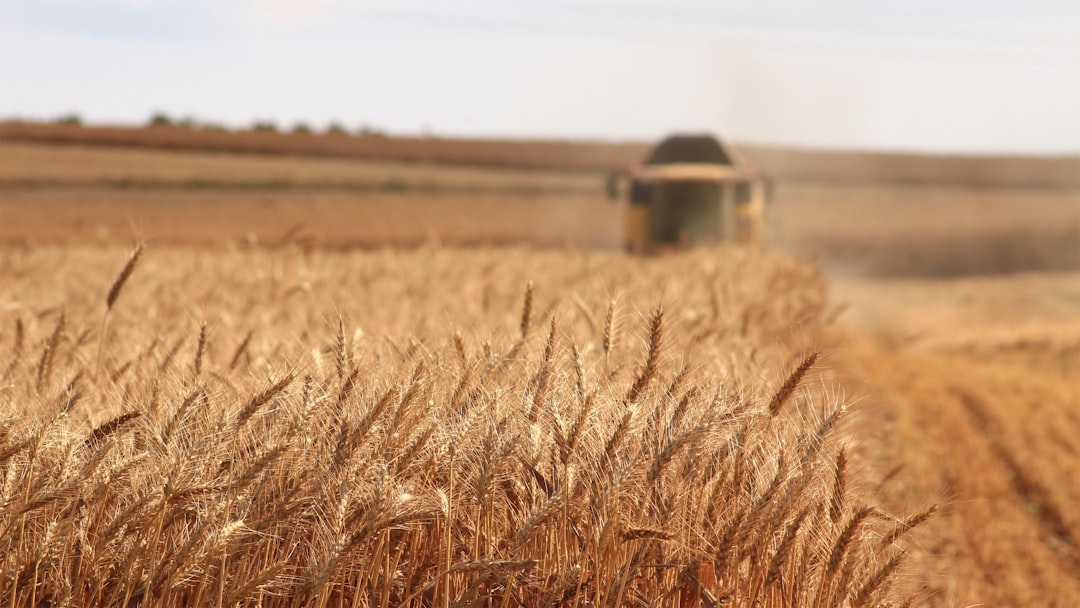{source=”unsplash” unsplashQuery=”agriculture, drones, precision technology, sustainable farming, crop monitoring, environmental conservation, irrigation planning, land surveying, conservation efforts” unsplashId=”CE1OvMrZumQ”}


